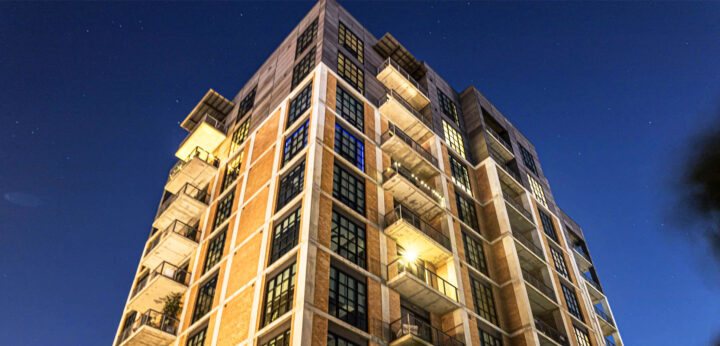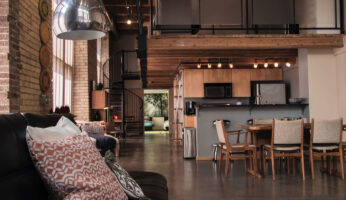Table of Contents
What is the difference between a condo and an apartment?
The difference between a condo and an apartment comes down to ownership. Physically, there’s no difference between them — they both consist of large buildings that contain multiple residences.
However, apartments typically belong to property management companies or to major landlords who own and manage the entire building or complex. On the other hand, condos are owned by individual landlords, who may or may not own other units in that building.
In more detail, here are the five differences between condos and apartments:
1. Ownership
As mentioned, in an apartment building, every unit is usually owned by a single entity, either a property management company or (less commonly) a landlord. On the other hand, condos can be purchased by individuals, who will either live there themselves or rent the unit out.
This means that if you rent an apartment, you’ll usually have a property manager. If you rent a condo, you’ll have a private landlord who will manage the property themselves or through their community’s homeowners association (HOA).
2. Payment
All other things being equal, most of the time apartments and condos are equally expensive to rent. However, the expenses and payment methods associated with them are slightly different.
Fees and expenses
When you rent an apartment, you typically only have to pay for rent and utilities. Your property manager will pay for routine maintenance, repairs, and other expenses.
Condos come with a slightly different set of fees. For instance, many condos have a condo fee or HOA maintenance fee that pays for the building’s upkeep, as well as for your utilities (although sometimes the condo fee will only cover your water bill, in which case you’ll have to pay for your other utilities separately).
Payment methods
When you live in an apartment, you can usually pay your bills by check or credit card — whichever you prefer. Sometimes you can also pay through your property management company’s online portal.
Condos can be more restrictive. It’s common for condo landlords to only accept payment via check, although some also accept credit cards.
3. Amenities
Because condos are individually owned, it’s up to each landlord which in-unit amenities they want to install (e.g. granite countertops, walk-in showers, etc). By contrast, because apartment buildings are owned by a single entity, all the units will generally be very similar and will have the same amenities.
Apartments and condos both tend to feature shared amenities like a laundry room or gym. Additionally, many condos also offer luxury amenities, such as:
- 24-hour concierge and security services
- Visitor parking
- BBQ areas
- Swimming pools
Some upscale apartments also feature luxury amenities, of course, but they’re more common in condos.
4. Maintenance
When you rent a condo, your landlord is responsible for maintaining your unit, which means that you’re dependent on their availability and willingness to help you if something breaks. In some cases, you may even be required to put your own money towards repairs. (Note that your HOA is only responsible for the building exterior, shared facilities, and common areas — they won’t step in to fix anything inside your residence.)
Conversely, when you rent an apartment, you’ll almost never be responsible for maintenance or repairs yourself. Many property management companies will even provide a free 24-hour maintenance service that you can call if something breaks in your unit.
5. Rules and regulations
Condos and apartments both have rules which specify how to dispose of your trash, how to handle disputes with your neighbors, whether pets are allowed, etc. However, condos and apartments set these rules differently.
If you live in an apartment block, your property management company will make the rules, whereas if you live in a condo, your HOA will set regulations for the entire condo complex that you and your landlord will both have to follow. Your landlord may also write their own set of rules for the unit itself into your lease agreement.
Should I rent a condo or an apartment?
Condos and apartments both have their pros and cons. The decision ultimately comes down to your preferences.
Many people prefer renting an apartment because they prefer the around-the-clock service that property management companies can offer. Others feel the opposite way, and prefer the feeling of renting from an individual rather than a large company.
Some people also prefer living in a condominium because they consider it an entry point to homeownership. Renting a condo is a great way to test out the building and neighborhood before buying a condo of your own.






